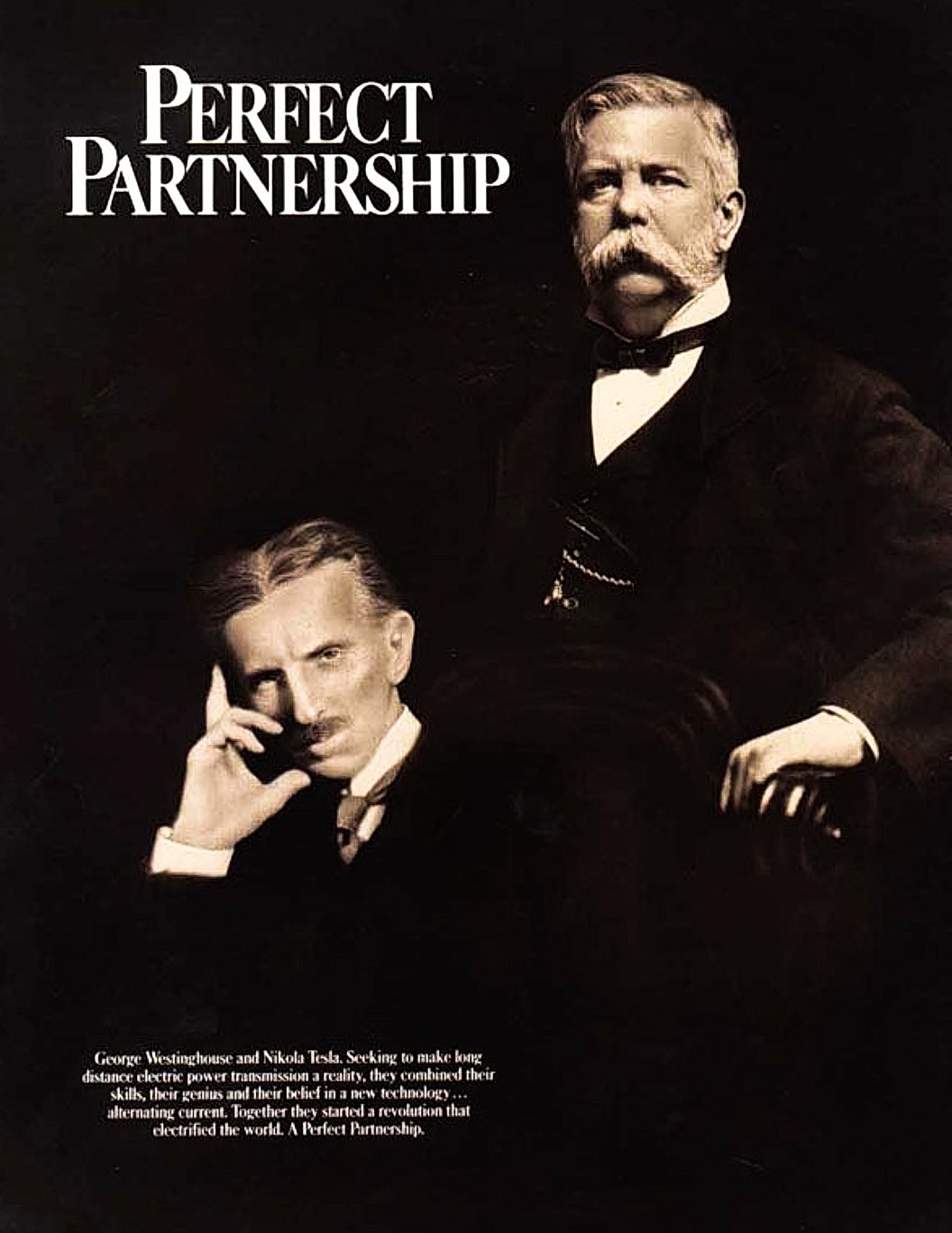
"George Westinghouse was, in my opinion, the only man on this globe who could take my alternating current system under the circumstances then existing and win the battle against prejudice and money power. He was a pioneer of imposing stature, one of the world's true nobleman of whom America may well be proud and to whom humanity owes an immense debt of gratitude.'' Nikola Tesla speech, Institute of Immigrant Welfare, Hotel Baltimore, New York, May 12, 1938, read in absentia
George Westinghouse, building the first major hydroelectric power plant in the world in1895. His ultimate vision was to harness the electrical power of the Sun/Earth system and transmit it freely over the globe to every human being using wireless energy transfer. In a world in which increasingly the focus of research funding is allocated towards profit and conquest rather than the benefit of all mankind. By focusing scientific research on the increase of human energy and the advance of civilization we can build the technology of peace. The scientist's ego, in pursuit of personal recognition is limiting the results of cosmic evolution. The results of science of peace should be open source technologies for all mankind removing the technology gap in between nations. The science of war finds itself on a turning point, opening towards a new humanity, towards a science of peace, distancing itself from the energy of the atom. (source unknown)
In the 1860s, stopping a speeding train was a race against disaster. Brakemen had to leap between cars, cranking heavy wheels by hand while iron wheels screamed on the rails. By the time the last car slowed, it was often too late.
George Westinghouse refused to accept that risk as normal. Barely out of his teens, he sketched an idea few thought possible: a system that could brake every car at the same instant with a single command.
In 1869, at 22 years old, he patented the automatic air brake. Using compressed air, his design let engineers stop entire trains quickly and safely.
Railroad executives scoffed. Some dismissed him outright. But Westinghouse persisted until the mighty Pennsylvania Railroad agreed to test his system. The trial succeeded spectacularly. Within years, air brakes were adopted worldwide, preventing countless accidents and becoming the backbone of modern rail safety.
His story proves that revolutionary change often starts with one person who refuses to accept “impossible.”
See Also
